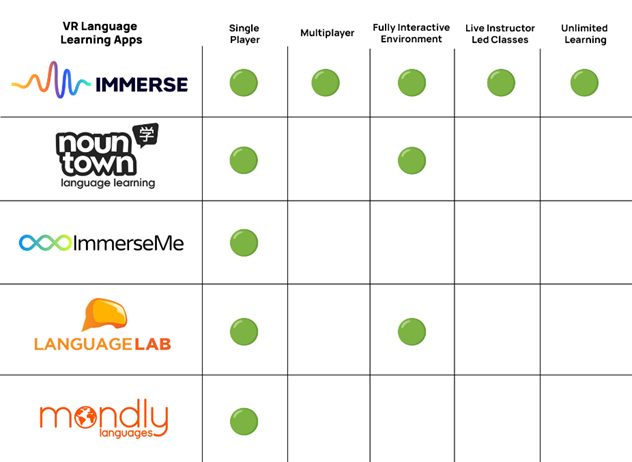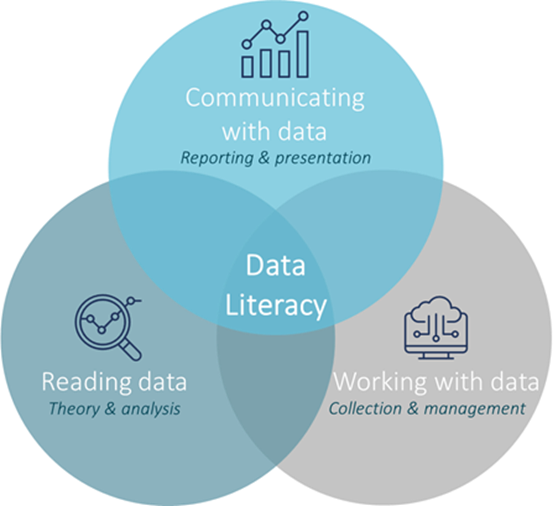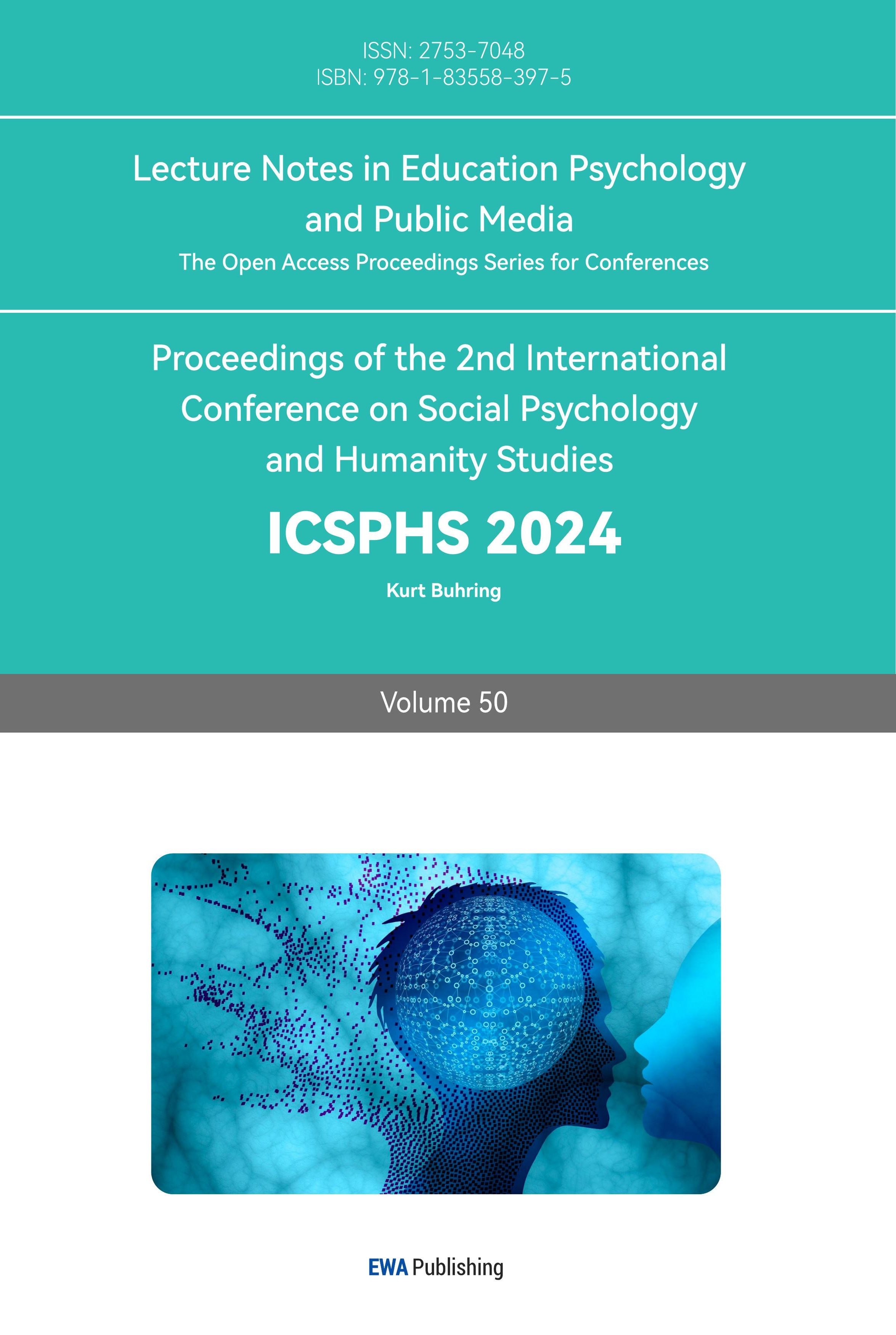1. Introduction
The foundation of language and literacy laid in the early years of a child's life sets the trajectory for their future cognitive, social, and academic development. Recognizing the critical role of early language acquisition and literacy practices, this paper delves into the profound cognitive benefits and social-emotional growth associated with early literacy experiences. The significance of these early experiences is underscored by extensive research, indicating that the richness of a linguistic environment can enhance memory, problem-solving skills, and foster advanced cognitive functions. Similarly, early literacy activities are shown to cultivate empathy, emotional regulation, and positive social interactions, laying the groundwork for holistic development. In the era of data-driven education, personalized learning, technology integration, and continuous assessment emerge as key strategies to address individual learning needs and preferences, offering a pathway to optimize educational practices and outcomes. This paper aims to provide a comprehensive overview of the current research and practices in early language and literacy development, highlighting the importance of early interventions and the potential of technological innovations to support learning [1]. By exploring the implications of these findings for educational policy and the cultivation of lifelong learners, we advocate for a strategic approach to language and literacy education that prioritizes accessibility, inclusivity, and adaptability. As we navigate through the complexities of early childhood education, the insights presented in this paper seek to inform educators, policymakers, and stakeholders about the critical importance of nurturing language and literacy from an early age, aiming to foster environments that support diverse learning pathways and promote lifelong educational success.
2. The Importance of Early Language and Literacy Development
2.1. Cognitive Benefits
Quantitative studies have consistently demonstrated the profound impact of early language acquisition on cognitive development. For instance, research conducted by the National Institute of Child Health and Human Development (NICHD) indicates that children exposed to rich linguistic environments from an early age exhibit significantly enhanced memory capacities, superior to their peers with less linguistic stimulation. Furthermore, a meta-analysis published in the journal "Cognitive Psychology" has linked early language skills with advanced problem-solving abilities, attributing this correlation to the development of critical thinking and reasoning skills facilitated by language complexity [2]. Additionally, longitudinal studies suggest that early bilingual or multilingual exposure accelerates the brain's executive functions, leading to an increased aptitude for learning additional languages later in life. These findings underscore the cognitive advantages conferred by early language development, highlighting its role in fostering an adaptable and robust cognitive foundation.
2.2. Social-Emotional Growth
The relationship between early literacy and social-emotional development is well-documented in academic literature. A study published in the "Journal of Early Childhood Literacy" found that children who regularly participate in reading and storytelling activities with caregivers or educators develop stronger social bonds and exhibit higher levels of empathy compared to their peers. This enhanced empathetic understanding is attributed to the exposure to diverse characters and scenarios encountered through stories, which allow children to practice perspective-taking and emotional response. Moreover, research in "Developmental Psychology" reveals that early literacy activities promote better emotional regulation, as narratives often introduce concepts of conflict resolution, frustration tolerance, and patience. These skills are critical for social interaction and are linked to improved peer relationships and classroom behavior, highlighting the importance of integrating literacy into early childhood education to support holistic social-emotional growth. Table 1 summarizing the influence of early literacy on various aspects of social-emotional growth [3].
Table 1: The Impact of Early Literacy on Social-Emotional Development in Children
Aspect | Influence of Early Literacy | |
Empathy Development | Enhanced through exposure to diverse characters and scenarios, fostering perspective-taking and emotional response. | Journal of Early Childhood Literacy |
Social Bonds | Strengthened by regular participation in reading and storytelling activities with caregivers or educators. | Journal of Early Childhood Literacy |
Emotional Regulation | Improved by narratives introducing concepts of conflict resolution, frustration tolerance, and patience. | Developmental Psychology |
Peer Relationships | Linked to improved social interaction due to better emotional regulation and empathetic understanding. | Developmental Psychology |
Classroom Behavior | Positively impacted, as literacy activities contribute to better self-regulation and understanding of social norms. | Developmental Psychology |
2.3. Academic Achievement
The link between early literacy proficiency and subsequent academic achievement is a focal point of educational research. A comprehensive study by the Educational Testing Service (ETS) analyzing standardized test scores across multiple grade levels found a strong correlation between literacy skills acquired before the age of 5 and higher performance on reading and math assessments in later grades. This correlation persists even after controlling for socioeconomic factors, indicating that foundational language skills are a key predictor of academic success. Furthermore, longitudinal data from the Department of Education underline the role of early literacy in setting the trajectory for lifelong learning, showing that children with solid early literacy foundations are more likely to excel in higher education and possess a greater likelihood of academic perseverance [4]. These quantitative analyses provide compelling evidence for prioritizing early literacy interventions as a strategic approach to enhance educational outcomes, advocating for policies and practices that ensure all children have access to the resources and support needed to develop essential language and literacy skills from a young age, as shown in Table 2.
Table 2: Impact of Early Literacy Interventions on Educational Outcomes
Metric | Group with Early Literacy Intervention | Group without Intervention |
Literacy Rate at Age 7 | 92% | 78% |
Cognitive Development Score (Age 5) | 110 (Average) | 100 (Average) |
Reading Comprehension (Grade 2) | 85% Proficiency | 65% Proficiency |
Math Performance (Grade 2) | 80% Proficiency | 60% Proficiency |
High School Graduation Rate | 95% | 85% |
3. Data-Driven Instructional Strategies
3.1. Personalized Learning
Leveraging data analytics in personalized learning involves collecting and analyzing detailed information on each student's performance, preferences, and learning pace. This approach enables educators to tailor instruction that aligns with individual strengths and addresses specific challenges. For instance, adaptive learning technologies can adjust the difficulty level of tasks in real-time based on the student's responses, ensuring that each learner is engaged at their optimal level of challenge. Furthermore, data analytics can identify patterns and trends in learning behaviors, allowing educators to predict potential difficulties and intervene before they hinder progress. In practice, personalized learning may involve differentiated reading groups based on language proficiency levels, customized vocabulary exercises targeting each student's gaps, or individualized feedback on writing assignments to enhance literacy skills [5]. This methodology not only fosters a more inclusive and supportive learning environment but also empowers students by giving them a sense of ownership over their learning process.
3.2. Technology Integration
The integration of technology into language and literacy instruction offers dynamic and interactive opportunities for engagement and learning. Quantitative research supports the efficacy of digital tools, such as educational apps and e-books, in promoting literacy development. These technologies can provide immediate feedback, enabling learners to adjust their strategies and understand concepts more deeply. For example, voice recognition software can assist in language pronunciation exercises, offering corrections and suggestions for improvement. Interactive e-books can enhance storytelling with visual and auditory stimuli, making reading a more engaging experience for young learners. Additionally, online platforms offer vast resources for educators to access differentiated instructional materials, catering to diverse learning needs within the classroom [6]. Such technology not only aids in the acquisition of language and literacy skills but also develops digital literacy, preparing students for the technologically advanced world they will navigate in the future.
3.3. Continuous Assessment
Continuous assessment in a data-driven educational framework involves regular, systematic collection and analysis of student performance data to inform instruction. Unlike traditional assessment methods, which often occur at the end of a learning period, continuous assessment provides real-time insights into student learning, allowing for immediate adjustments to teaching strategies. This approach can include formative assessments, such as quizzes, observations, and student reflections, which are integrated into daily activities rather than being seen as separate, high-stakes events. Data gathered from these assessments can highlight trends in student understanding, pinpoint areas of difficulty, and measure progress towards learning objectives [7]. For instance, educators can use digital platforms to track the frequency and types of errors in reading exercises, enabling targeted interventions to address specific literacy challenges. Furthermore, continuous assessment fosters a growth mindset among students, as it emphasizes progress and effort over static achievement. By making assessment an ongoing dialogue about learning, educators can create a supportive environment that encourages risk-taking, perseverance, and the development of self-regulated learning skills [8].
4. Future Directions in Language and Literacy Education
4.1. Advancements in Educational Technology
Recent advancements in educational technology have the potential to revolutionize language and literacy instruction. Interactive e-books, language learning apps, and augmented reality (AR) experiences offer immersive and personalized learning opportunities that can adapt to the individual needs of each student. For example, adaptive learning software utilizes algorithms to analyze a student's performance in real-time, adjusting the difficulty level of tasks and providing targeted feedback to enhance comprehension and retention. Furthermore, virtual reality (VR) environments can simulate real-world scenarios that encourage language use in context, significantly improving engagement and motivation [9]. The integration of artificial intelligence (AI) in educational tools allows for the development of sophisticated platforms that support natural language processing, enabling voice recognition and conversation-based learning that mimic human interaction, as shown in Figure 1. This technology not only supports the development of reading and writing skills but also promotes oral language proficiency and listening comprehension, critical components of literacy.

Figure 1: VR Language learning Apps in 2023(Source:Immerse.com)
4.2. Policy Implications
The effectiveness of data-driven literacy programs has significant implications for educational policy. Research indicates that early intervention and support are crucial for language development and literacy acquisition, as shown in Figure 2. Consequently, policy recommendations should focus on allocating resources towards the implementation of evidence-based literacy programs in early childhood education settings. This includes investing in teacher training programs to ensure educators are skilled in utilizing data-driven approaches and technological tools effectively. Additionally, policies should advocate for the integration of digital literacy into the curriculum, recognizing the role of technology in modern society and preparing students for future challenges [10]. Access to quality education can be improved by reducing the digital divide, ensuring that all children, regardless of socio-economic background, have access to the necessary technological tools and resources. Moreover, data privacy and ethical considerations should be at the forefront of policy-making, establishing clear guidelines to protect student information while leveraging data to inform instructional practices.

Figure 2: Three spheres of data literacy(Source:Camelot-group.com)
4.3. Cultivating Lifelong Learners
Fostering an environment that values and nurtures language and literacy from an early age is imperative for cultivating lifelong learners. This entails creating a rich linguistic environment that encourages curiosity, critical thinking, and a love for reading. Educators can incorporate diverse texts that reflect a range of cultures, perspectives, and genres to broaden students' worldviews and enhance their understanding of complex concepts. Encouraging interactive and collaborative learning experiences, such as peer discussions, group projects, and storytelling activities, promotes communication skills and builds confidence. Furthermore, integrating cross-curricular connections, where language and literacy skills are applied in other subject areas, demonstrates the practical value of these skills in everyday life and other academic disciplines. To support lifelong learning, it is essential to instill in students the ability to self-regulate their learning process, fostering skills such as goal setting, strategic planning, and reflection. By prioritizing these approaches, educators lay the groundwork for students to become engaged, motivated, and self-directed learners, capable of adapting to the evolving demands of the 21st century.
5. Conclusion
In conclusion, the critical examination of early language and literacy development presented in this paper highlights the undeniable impact of early linguistic and literacy experiences on a child's cognitive and social-emotional development. The evidence from quantitative studies and academic research supports the integration of data-driven instructional strategies, such as personalized learning, technology integration, and continuous assessment, as effective methods to enhance language and literacy outcomes. These strategies not only cater to the diverse needs of learners but also prepare them for the challenges of the 21st-century educational landscape. Furthermore, the discussion on educational policy and the cultivation of lifelong learners underscores the necessity of early interventions and the potential of technological advancements to democratize access to quality education. It is imperative that educators, policymakers, and stakeholders prioritize the development of comprehensive language and literacy programs that embrace the benefits of early exposure, technological integration, and continuous support. By doing so, we can ensure that all children have the foundation necessary to navigate their academic journey, achieve personal growth, and contribute meaningfully to society. The future of language and literacy education lies in our collective ability to innovate, adapt, and commit to the lifelong success of every learner.
References
[1]. Rinaldi, Pasquale, et al. "Gender differences in early stages of language development. Some evidence and possible explanations." Journal of Neuroscience Research 101.5 (2023): 643-653.
[2]. Reuter, Tracy, et al. "Infants' lexical comprehension and lexical anticipation abilities are closely linked in early language development." Infancy 28.3 (2023): 532-549.
[3]. Kartushina, Natalia, and Julien Mayor. "Coping with dialects from birth: Role of variability on infants’ early language development. Insights from Norwegian dialects." Developmental Science 26.1 (2023): e13264.
[4]. Domek, Gretchen J., et al. "Finger puppets to support early language development: effects of a primary care-based intervention in infancy." Clinical Pediatrics (2023): 00099228231163718.
[5]. Farber, Matthew, and William Merchant. "Insights from investigating early childhood ebooks on literacy, cognitive development, and social and emotional learning outcomes." E-Learning and Digital Media 20.3 (2023): 300-313.
[6]. Lashari, Ajab Ali, et al. "Music education in language and cognitive development: A critical review." PalArch's Journal of Archaeology of Egypt/Egyptology 20.2 (2023): 2101-2111.
[7]. Cromley, Jennifer G. "Metacognition, cognitive strategy instruction, and reading in adult literacy." Review of Adult Learning and Literacy, Volume 5. Routledge, 2023. 187-204.
[8]. Rabillas, Annabelle, et al. "Elementary Math Learning Through Piaget's Cognitive Development Stages." Excellencia: International Multi-disciplinary Journal of Education (2994-9521) 1.4 (2023): 128-142.
[9]. Todd, Sarah, Louise Reagan, and Rick Laguerre. "Health literacy, cognitive impairment, and diabetes knowledge among incarcerated persons transitioning to the community: considerations for intervention development." Journal of Forensic Nursing 19.4 (2023): 262-270.
[10]. Fatra, Maifalinda, Rani Darmayanti, and Amrit Dhakal. "A study that uses Card based learning media to help students’ mathematical literacy." Delta-Phi: Jurnal Pendidikan Matematika 1.2 (2023): 91-98.
Cite this article
Wang,J. (2024). Enhancing Early Language and Literacy Development: A Data-Driven Approach to Educational Outcomes and Lifelong Learning. Lecture Notes in Education Psychology and Public Media,50,249-255.
Data availability
The datasets used and/or analyzed during the current study will be available from the authors upon reasonable request.
Disclaimer/Publisher's Note
The statements, opinions and data contained in all publications are solely those of the individual author(s) and contributor(s) and not of EWA Publishing and/or the editor(s). EWA Publishing and/or the editor(s) disclaim responsibility for any injury to people or property resulting from any ideas, methods, instructions or products referred to in the content.
About volume
Volume title: Proceedings of the 2nd International Conference on Social Psychology and Humanity Studies
© 2024 by the author(s). Licensee EWA Publishing, Oxford, UK. This article is an open access article distributed under the terms and
conditions of the Creative Commons Attribution (CC BY) license. Authors who
publish this series agree to the following terms:
1. Authors retain copyright and grant the series right of first publication with the work simultaneously licensed under a Creative Commons
Attribution License that allows others to share the work with an acknowledgment of the work's authorship and initial publication in this
series.
2. Authors are able to enter into separate, additional contractual arrangements for the non-exclusive distribution of the series's published
version of the work (e.g., post it to an institutional repository or publish it in a book), with an acknowledgment of its initial
publication in this series.
3. Authors are permitted and encouraged to post their work online (e.g., in institutional repositories or on their website) prior to and
during the submission process, as it can lead to productive exchanges, as well as earlier and greater citation of published work (See
Open access policy for details).
References
[1]. Rinaldi, Pasquale, et al. "Gender differences in early stages of language development. Some evidence and possible explanations." Journal of Neuroscience Research 101.5 (2023): 643-653.
[2]. Reuter, Tracy, et al. "Infants' lexical comprehension and lexical anticipation abilities are closely linked in early language development." Infancy 28.3 (2023): 532-549.
[3]. Kartushina, Natalia, and Julien Mayor. "Coping with dialects from birth: Role of variability on infants’ early language development. Insights from Norwegian dialects." Developmental Science 26.1 (2023): e13264.
[4]. Domek, Gretchen J., et al. "Finger puppets to support early language development: effects of a primary care-based intervention in infancy." Clinical Pediatrics (2023): 00099228231163718.
[5]. Farber, Matthew, and William Merchant. "Insights from investigating early childhood ebooks on literacy, cognitive development, and social and emotional learning outcomes." E-Learning and Digital Media 20.3 (2023): 300-313.
[6]. Lashari, Ajab Ali, et al. "Music education in language and cognitive development: A critical review." PalArch's Journal of Archaeology of Egypt/Egyptology 20.2 (2023): 2101-2111.
[7]. Cromley, Jennifer G. "Metacognition, cognitive strategy instruction, and reading in adult literacy." Review of Adult Learning and Literacy, Volume 5. Routledge, 2023. 187-204.
[8]. Rabillas, Annabelle, et al. "Elementary Math Learning Through Piaget's Cognitive Development Stages." Excellencia: International Multi-disciplinary Journal of Education (2994-9521) 1.4 (2023): 128-142.
[9]. Todd, Sarah, Louise Reagan, and Rick Laguerre. "Health literacy, cognitive impairment, and diabetes knowledge among incarcerated persons transitioning to the community: considerations for intervention development." Journal of Forensic Nursing 19.4 (2023): 262-270.
[10]. Fatra, Maifalinda, Rani Darmayanti, and Amrit Dhakal. "A study that uses Card based learning media to help students’ mathematical literacy." Delta-Phi: Jurnal Pendidikan Matematika 1.2 (2023): 91-98.









